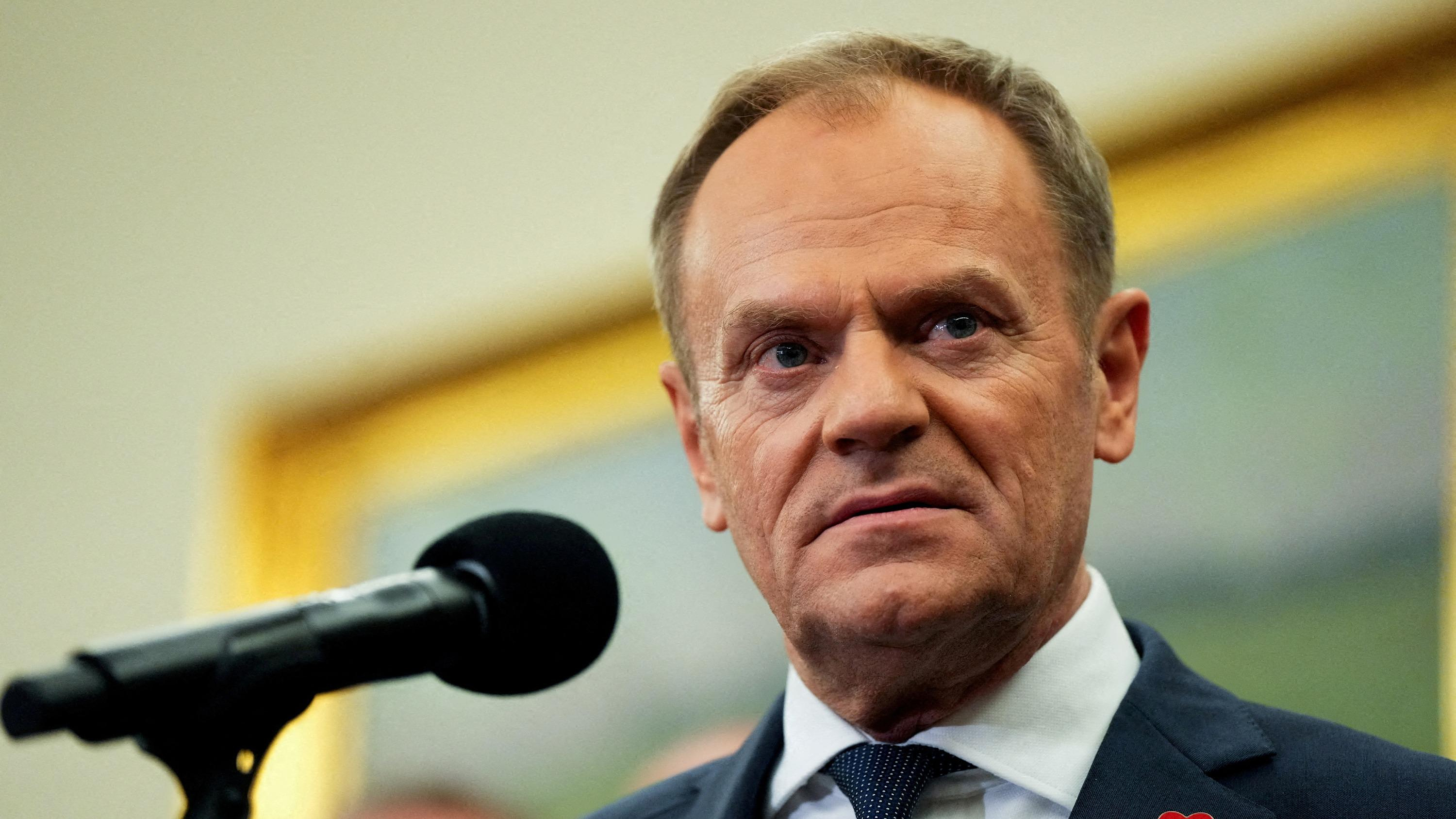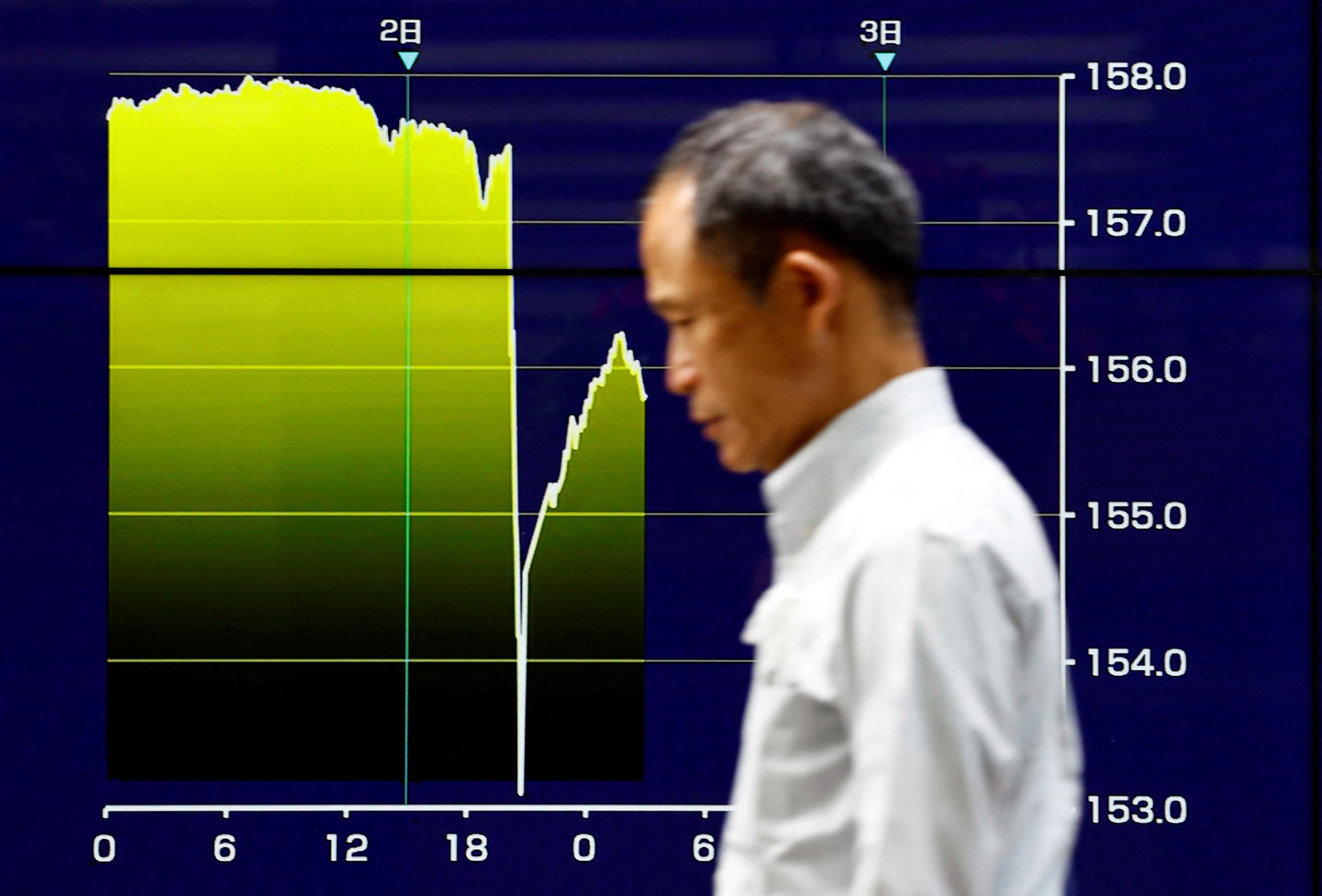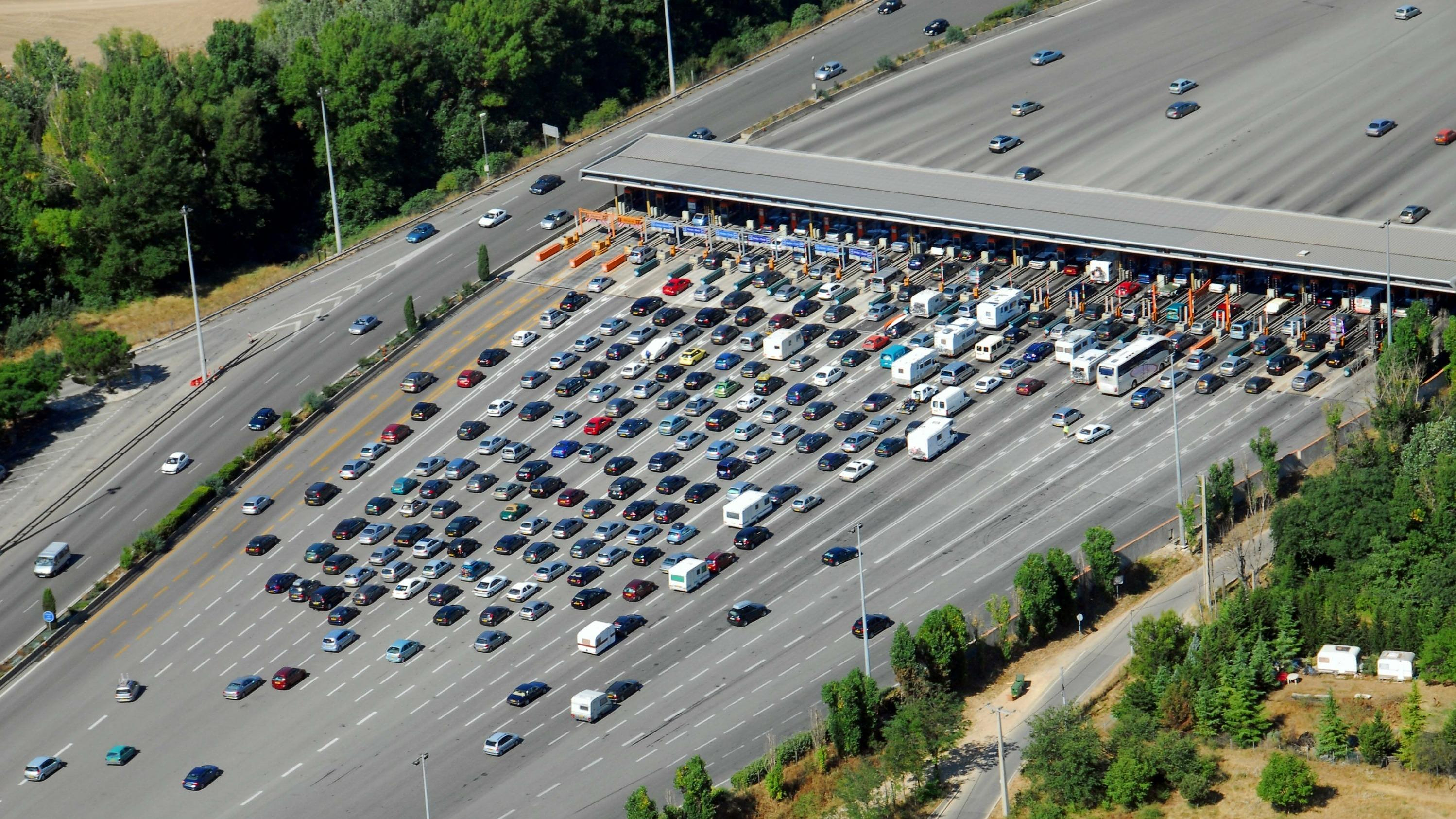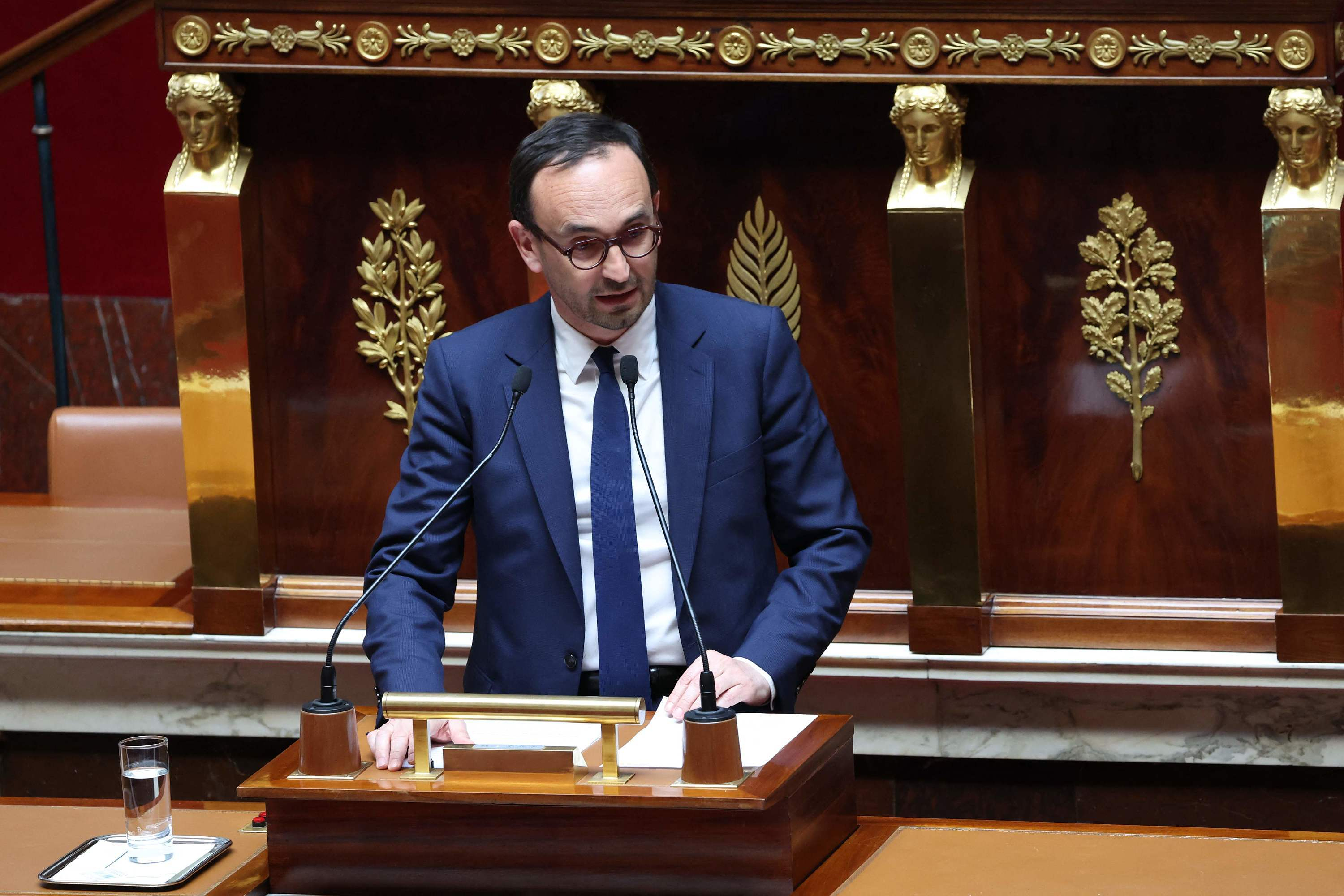Act 2: The fightback. Fifteen days after his return to the head of the Polish government last December, which ended eight years of power in the hands of the conservative populists of the Law and Justice party (PiS), Donald Tusk spectacularly attacked the public media Polish whom he accused of being in the pay of the fallen government. It is now the judges of the Polish Constitutional Court who are getting involved, deeming this reform of public media “illegal” – these judges themselves being suspected by the European Union of being under the influence of PiS.
On December 27, the new Minister of Culture Bartlomiej Sienkiewicz announced the state of "liquidation" of public media, in order to "ensure the functioning and restructuring" of public radio and television and the agency Polish press PAP, and “to avoid layoffs of employees” of these companies.
This decision followed a standoff between the new liberal and pro-European government and Polish President Andrzej Duda, a member of PiS. While the new government replaced, in the wake of its election, the management team at the head of the public media, the President of the Polish Republic decided to veto the granting of subsidies paid by the State to these media.
This political and institutional struggle to regain control of public broadcasting and the state press agency has widely mobilized public opinion. While PiS supporters protested extensively against the replacement of the heads of public media, described by PiS as an “attack on media freedom”, some of the Law and Justice deputies even occupied the offices of the PiS for several days. public television. Meanwhile, the European Commission supported Donald Tusk, who was president of the European Council from 2014 to 2019: Brussels told media outlet Euractiv that this media reform has been necessary for a long time.
Finally, in a judgment handed down this Thursday, the Polish Constitutional Court ruled that the liquidation of public media was illegal, seeing it as a decision contrary to Article 2 of the Polish Constitution, according to which “the Republic of Poland is a democratic state of law implementing the principles of social justice. For the Constitutional Court, the government did not have the right to rely on commercial law to dismiss the boards of directors of public media.
In the wake of this decision, the Minister of Culture immediately declared that in the eyes of the government, the decision of the constitutional judge had “no legal significance” – and that it should therefore be ignored.
In reality, the Constitutional Court itself is perceived by pro-Europeans and opponents of PiS as an instance under the influence of the former populist power.
In the eyes of the government, the president of the Constitutional Court Julia Przyłębska and some of the judges of the Court are politically close to the PiS, which since 2015 has reformed the justice system on several occasions, sparking numerous and imposing demonstrations on the part of PiS's adversaries. .
The latest reform, adopted in 2019, was deemed contrary to European law by the Court of Justice of the European Union. This reform made it possible to appoint a significant number of new magistrates and limited the possibility, for the country's judges, of questioning the impartiality of their colleagues.
“The judgments and resolutions […] of the European Court of Human Rights and the Supreme Court, relating to the current structure of the Constitutional Tribunal […] confirm that it is not an independent constitutional court and impartial” therefore pleads the government after the setback inflicted by the Constitutional Court.
After the public media, it is therefore the constitutional judges that Donald Tusk will have to attack if he wants to continue his takeover of the country. Meanwhile, thousands of demonstrators gathered on January 11 in support of PiS and to protest against the reforms of the new liberal and pro-European administration.
This political crisis even reached the antechamber of the presidential palace: on January 9, former ministers Mariusz Kamiński and Maciej Wąsik were violently arrested in the palace grounds in Warsaw, while President Andrzej Duda tried to arrest them. protect from justice. Both were pardoned by Duda when he came to power, but a court ultimately ruled the presidential pardon illegal, on the grounds that it was granted before the final verdict was pronounced. The judge ordered their arrest despite the president's intervention.

 What is chloropicrin, the chemical agent that Washington accuses Moscow of using in Ukraine?
What is chloropicrin, the chemical agent that Washington accuses Moscow of using in Ukraine? Poland, big winner of European enlargement
Poland, big winner of European enlargement In Israel, step-by-step negotiations for a ceasefire in the Gaza Strip
In Israel, step-by-step negotiations for a ceasefire in the Gaza Strip BBVA ADRs fall almost 2% on Wall Street
BBVA ADRs fall almost 2% on Wall Street Breast cancer: less than one in two French women follow screening recommendations
Breast cancer: less than one in two French women follow screening recommendations “Dazzling” symptoms, 5,000 deaths per year, non-existent vaccine... What is Lassa fever, a case of which has been identified in Île-de-France?
“Dazzling” symptoms, 5,000 deaths per year, non-existent vaccine... What is Lassa fever, a case of which has been identified in Île-de-France? Sánchez cancels his agenda and considers resigning: "I need to stop and reflect"
Sánchez cancels his agenda and considers resigning: "I need to stop and reflect" The Federal Committee of the PSOE interrupts the event to take to the streets with the militants
The Federal Committee of the PSOE interrupts the event to take to the streets with the militants Volvic factory shut down after “an act of malicious intent”: production can resume “at the earliest” on Friday
Volvic factory shut down after “an act of malicious intent”: production can resume “at the earliest” on Friday SNCF: algorithmic video surveillance in stations attacked before the CNIL
SNCF: algorithmic video surveillance in stations attacked before the CNIL Europeans: Macron's speech at the Sorbonne counted as speaking time on the Renaissance list
Europeans: Macron's speech at the Sorbonne counted as speaking time on the Renaissance list The government wants to strengthen its controls on cryptocurrency holders
The government wants to strengthen its controls on cryptocurrency holders Jean Reno publishes his first novel Emma on May 16
Jean Reno publishes his first novel Emma on May 16 Cannes Film Festival: Meryl Streep awarded an honorary Palme d’Or
Cannes Film Festival: Meryl Streep awarded an honorary Palme d’Or With A Little Something Extra, Artus and his disabled actors do better than Intouchable on the first day
With A Little Something Extra, Artus and his disabled actors do better than Intouchable on the first day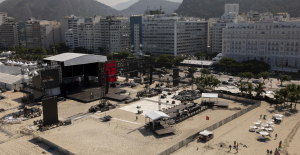 Madonna ends her world tour with a giant - and free - concert in Copacabana
Madonna ends her world tour with a giant - and free - concert in Copacabana Omoda 7, another Chinese car that could be manufactured in Spain
Omoda 7, another Chinese car that could be manufactured in Spain BYD chooses CA Auto Bank as financial partner in Spain
BYD chooses CA Auto Bank as financial partner in Spain Tesla and Baidu sign key agreement to boost development of autonomous driving
Tesla and Baidu sign key agreement to boost development of autonomous driving Skoda Kodiaq 2024: a 'beast' plug-in hybrid SUV
Skoda Kodiaq 2024: a 'beast' plug-in hybrid SUV The home mortgage firm rises 3.8% in February and the average interest moderates to 3.33%
The home mortgage firm rises 3.8% in February and the average interest moderates to 3.33% This is how housing prices have changed in Spain in the last decade
This is how housing prices have changed in Spain in the last decade The home mortgage firm drops 10% in January and interest soars to 3.46%
The home mortgage firm drops 10% in January and interest soars to 3.46% The jewel of the Rocío de Nagüeles urbanization: a dream villa in Marbella
The jewel of the Rocío de Nagüeles urbanization: a dream villa in Marbella Europeans: a senior official on the National Rally list
Europeans: a senior official on the National Rally list Blockade of Sciences Po: the right denounces a “drift”, the government charges the rebels
Blockade of Sciences Po: the right denounces a “drift”, the government charges the rebels Even on a mission for NATO, the Charles-de-Gaulle remains under French control, Lecornu responds to Mélenchon
Even on a mission for NATO, the Charles-de-Gaulle remains under French control, Lecornu responds to Mélenchon “Deadly Europe”, “economic decline”, immigration… What to remember from Emmanuel Macron’s speech at the Sorbonne
“Deadly Europe”, “economic decline”, immigration… What to remember from Emmanuel Macron’s speech at the Sorbonne These French cities that will boycott the World Cup in Qatar
These French cities that will boycott the World Cup in Qatar OM-Atalanta: the lines of the match
OM-Atalanta: the lines of the match Ligue 1: Lorient supporters invade the training center
Ligue 1: Lorient supporters invade the training center Hand: Montpellier overthrown by Kiel in the Champions League
Hand: Montpellier overthrown by Kiel in the Champions League Tennis: Medvedev gives up, Lehecka in semi-finals
Tennis: Medvedev gives up, Lehecka in semi-finals